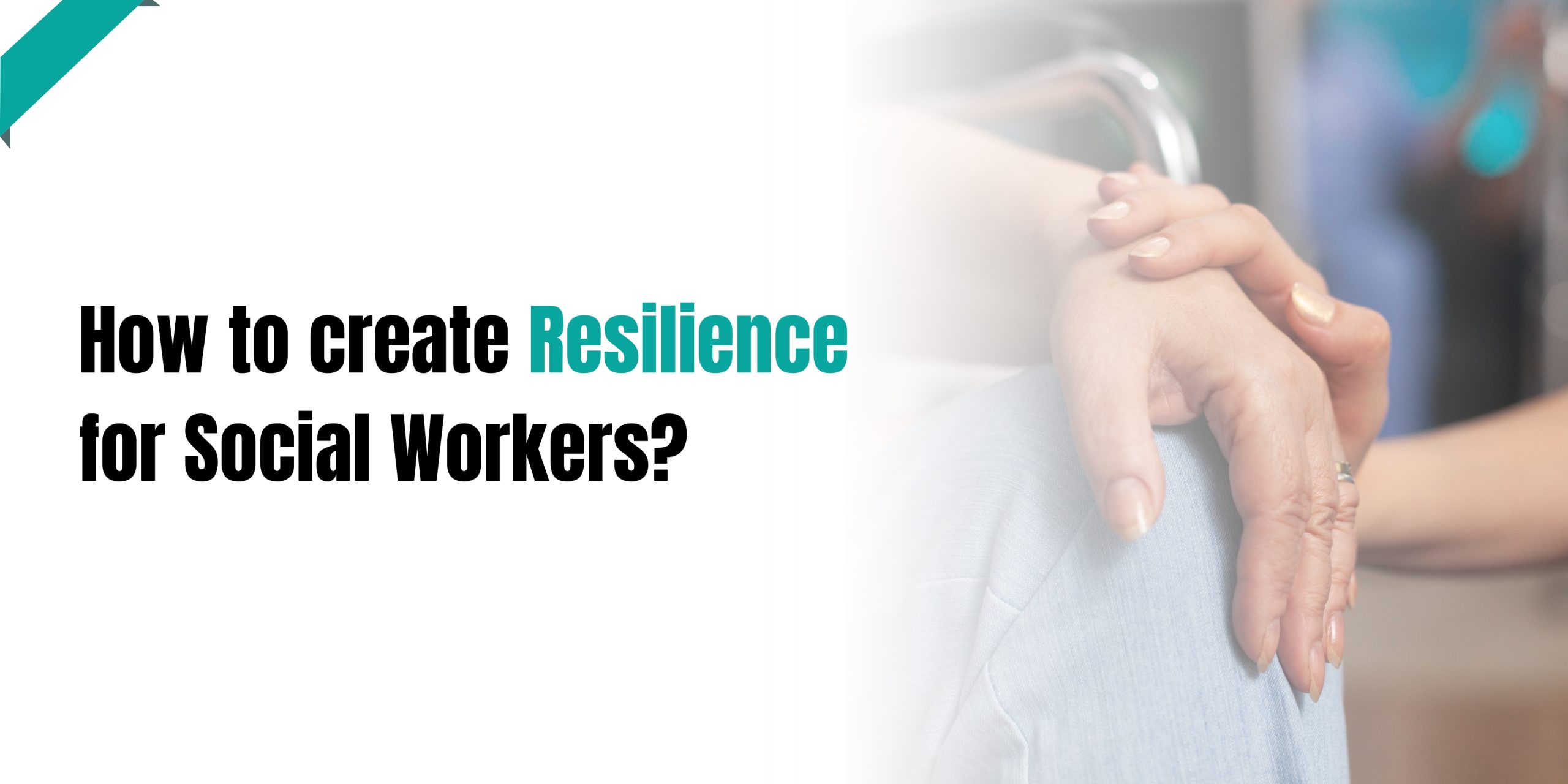
How to Create Resilience for Social Workers?
People who possess resilience are able to handle pain, misfortune, and adversity with emotional fortitude. For social workers, resilience aids in stress reduction and confidence building. Consequently, this can have a beneficial effect on your coworkers and service users.
They can also benefit from a resilience program by learning how to communicate clearly and bounce back fast from obstacles encountered in the workplace. Now that we know how important resilience is, let's look at how resilience may be developed in social workers.
Strategies to Build Resilience for Social Workers
You can develop your emotional resilience in social work using a variety of techniques. Some will involve picking up new methods and approaches. It will help you both personally and professionally in the long run as you apply these new abilities to your daily work and build emotional resilience.
The following are some strategies for building social workers' resilience:- negatively impact your relationships
- reduce job satisfaction, and
- impair your capacity to provide your clients with complete attention.
- Acknowledge the importance of setting boundaries. Setting limits is essential for your well-being, productivity, and emotional resilience in the social work field because burnout can occur there.
- Social workers run the risk of endangering their clients and their own mental and physical health when they don't set clear boundaries.
- In order to prevent emotional stress and safeguard social workers, clients, and the organization they work for, social workers need to set and uphold boundaries.
- In order to promote a relationship that is centered on the needs of the client and secure, open, stable, and honest, professional boundaries must be established.
- Your abilities, expertise, and self-assurance can all be enhanced by supervision, which can also help you deal with any problems or worries that crop up at work.
- Advising on handling difficult issues.
- Approving their choices and contributions as professionals.
- Providing chances for further education and skill development.
- Offering emotional support in order to handle stress properly.
- Assisting in further professional growth and adjustment.
- Stress Management
- Emotional Regulation
- Self-Care
- Boundaries
- Seeking Support
- Reflective Practice
- Adaptability
- Applying evidence-based techniques, taking on new challenges, getting feedback, and participating in continuous learning are all ways to improve your talents.
- Applying evidence-based techniques, taking on new challenges, getting feedback, and participating in continuous learning are all ways to improve your talents.
- Naturally, if you are passionate about your profession, you will want to give it your all, and occasionally, an opportunity to go above and above will present itself. It will enable you to handle stress, workplace relationships, and deadlines efficiently.
- Additionally, it makes it easier for you to digest both great and negative results. It also makes it possible for you to learn from bad outcomes and move on to produce favourable ones.
- Through reflective practices, social workers can gain confidence, self-awareness, and autonomy by reflecting on their work.
- To improve their emotional resilience, they must have the time to think about and assess their decisions and behaviors on a frequent basis.
❖ Self-Care Practices
Generally speaking, self-care includes actions done with the goal of lowering stress, increasing vitality, and making sure one's physical and emotional well-being are top priorities. Self-care can also involve addressing one's emotional responses to life and taking on challenges, such as asking for assistance.
Inadequate self-care during one's career can lead to chronic stress among social workers. This chronic stress can:
❖ Setting Boundaries
Acknowledge the importance of setting boundaries. Setting limits is essential for your well-being, productivity, and emotional resilience in the social work field because burnout can occur there.
❖ Seeking Supervision and Support
An essential part of social work practice is supervision. It gives you direction, criticism, instruction, and support from a more seasoned or senior team member.
❖ Developing Coping Strategies
Developing coping strategies builds resilience for social workers by:❖ Continuous Learning and Growth
Building emotional resilience can benefit social workers by enabling them to flourish professionally and positively adjust to challenging work environments. Your abilities and competencies, which can support you in overcoming obstacles and managing stress, are also important to your resilience.
Resilience Program for Social Workers
If you want more light on this, feel free to connect with our Resiliency Program and have a deeper understanding of it.